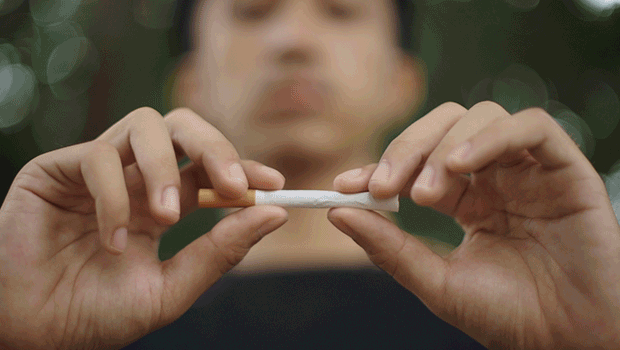Practice makes perfect: Quitting smoking may take more than 1 try

Did you know it takes most people several tries before they finally stop smoking and stay quit? So, don’t be discouraged if you try and slip. It’s all part of the process.
Quitting takes practice
“Becoming a nonsmoker requires learning new skills,” said Jennifer McClure, PhD, a Kaiser Permanente Washington Health Research Institute (KPWHRI) scientist who leads the institute’s tobacco studies. “You can learn from every attempt to quit smoking and use your new skills to be more successful the next time.” And if you pay attention to when and why you slipped and started smoking again, you’ll be better prepared to stay quit the next time you stop smoking. Think of each attempt as practice or training for your future success.
Slipped? Don't stay down.
In her research, McClure has explored the benefits of being mindful and accepting of unwanted thoughts and behaviors when quitting smoking. This can help you observe, acknowledge, and accept your cravings to smoke, your emotions, and your thoughts — and to allow these to come and go without smoking. And if you do slip, being mindful and accepting can also help you recommit to quitting.
Follow these important steps each time you slip:
-
Get back on the wagon.
A slip doesn’t mean a total relapse. Accept that you slipped and then return to staying quit. -
Forgive yourself.
Don’t beat yourself up. Feeling bad may make you want to smoke more. - Learn from your mistakes.
Think about what tripped you up last time. How can you avoid smoking in that situation and in the future? Try to think of new ways to be better prepared next time.
- Congratulate yourself when you get back on track.
Be proud that you haven’t let this setback cause you to relapse. Sure, slipping isn’t a good thing, but you’re strong enough to try again.
- Get more help.
If you need it, seek additional help from your family, friends, doctor, or other resources. For example:- Think about getting help from a stop-smoking counselor. Kaiser Permanente Washington members can enroll in the Quit for Life program by calling 1-800-462-5327 or visiting the Quit For Life website. And anyone in the U.S. can call the national stop-smoking hotline at 1-800-QUIT-NOW to connect with free stop-smoking services in their local area.
- Talk with your doctor about which stop-smoking medicine is right for you. KPWHRI research has shown that all 3 medicines approved by the Food and Drug Administration — varenicline (Chantix), nicotine replacement therapy (like the patch or gum), and bupropion (Zyban) — increase your chance of quitting smoking when used correctly and with professional advice or counseling.
Celebrate success
It’s important to celebrate daily, weekly, and monthly successes. In the beginning, celebrate your freedom from tobacco hourly, daily, and weekly. Keep this simple goal in mind: Beat your previous best.
Say you made it 2 weeks without smoking the last time before you slipped. Use that marker as your first goal to beat this time around. Keeping this milestone in mind will really help you increase your chances of staying quit.
Live Healthy: Top Topics
healthy findings blog

Can being accepting and mindful help you stop smoking?
Tobacco remains a public health priority. Jennifer McClure, PhD, discusses her findings comparing ’acceptance and commitment therapy’ to standard care.
Research

Digital tool could help people change smoking habits
A mobile application designed to engage smokers who are ambivalent about quitting shows promising results.



